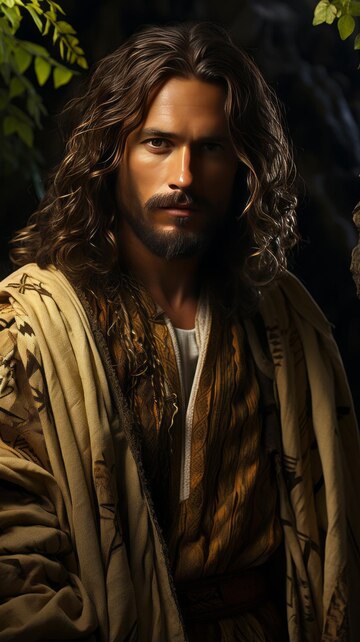Chapter 7: Anthropology (Doctrine of Man)
I. Why study humanity?
Biblical mandate: Ps 8:3–4; Job 7:17–18
Humans are made in God’s image: Gen 1:26–27; Jas 3:9
Humanity’s created function: Gen 1:26–28; Ps 8:5–6
Human redemption is the theme of Scripture: Gen 3:15 (the gospel in Eden); Matt 11:28–30; 28:19–20; Rev 14:6
People should understand themselves by biblical revelation: 1 Thess 5:23; Gen 2:7; Deut 6:5
II. The origin of humanity
A. Erroneous models
Atheistic Evolution: Attempts to explain human origins apart from God’s special creation.
Theistic Evolution: Tries to explain the origin of life through a God-mediated evolutionary process.
Progressive Creationism: Holds to an evolutionary framework but claims God lends a hand at critical junctures.
Deism: God created the universe and natural laws, then no longer intervenes, leaving nature to run itself.
Day-Age Theory: Insists that the “days” in Genesis are not 24 hours but long periods of time.
Gap Theory: Believes there is a long gap between Gen 1:1 and 1:2, with “re-creation” starting at verse 3.
B. Biblical Creationism
Scriptural support: Gen 1:1–31; 2:7; Exod 20:8–11; Ps 148:1–6; John 1:1–3; Col 1:16; Heb 1:1–3; Rev 4:11; Rom 1:20; Ps 8:3–6.
“What is man that You are mindful of him?”
Features of creationism:
Humans were directly created by God — Gen 1:27; 2:7.
Humans were created in God’s image — Gen 1:26.
Humans possess both material and immaterial aspects — Gen 2:7.
Humanity was created to act as God’s vice-regent over the earth — Gen 1:26–30.
Affirms the historicity of Adam, Eve, and Eden — Gen 2:7–3:20; Rom 5:12–19; 1 Cor 15:21–22; 1 Tim 2:13–14.
God created humanity male and female at the same time — Gen 1:27; 5:2.
All creation came by God’s command — Gen 1:1–31; Ps 148:1–6; Heb 11:3; John 1:3.
All creation was completed in six days — Gen 1:1–31.
Gen 1:1 is a summary statement; Gen 1:2–31 provides the details.
Creationism holds that the geological strata were formed by Noah’s flood.
Evidence for creationism:
Fossils show various kinds appearing suddenly and simultaneously at certain points, not gradually evolving.
The laws of thermodynamics point to a supernatural origin of the universe and humanity.
The high complexity of life and the interdependence within biological chains testify to a supremely wise design.
Importance of creationism:
Establishes the historicity of Genesis 1–11.
Affirms the authority of the words of the Lord Jesus and the apostles: Matt 19:4–5; Mark 10:6–7; 13:19; Luke 11:49–51; Rom 1:20; 5:12–21; 1 Cor 15:20–22, 45–49; 2 Cor 11:3; Heb 11:4–5; 1 John 3:12.
Upholds the inerrancy of Scripture.
III. Humanity made in the image of God
A. Major views on the “image of God”
Substantive View: The image consists in certain essential qualities (e.g., spirituality, eternity/immortality, personhood, original righteousness).
Relational View: The image is seen in relationships—between humans and God, and among humans.
Functional View: The image is expressed in humanity’s mandate to rule as God’s representatives over the earth.
B. Theological and practical importance of the image of God
Serving as God’s stewards over the earth — Gen 1:26–28
Christ is the image of God — 2 Cor 4:4; Col 1:15
Goal of salvation — 2 Cor 5:17; Eph 4:24; Rom 8:29
Order in worship — 1 Cor 11:7
Prohibition of murder and cursing — Gen 9:6; Jas 3:9
Rule for Christian living — Eph 4:1–6, 20; Col 3:1–4:6
IV. God created male and female
Marriage and family; procreation: Gen 2:24; 1:28; Matt 19:6; Mal 2:14–16
Equality of men and women: Prov 31:10–31; 1 Pet 3:7; Gal 3:28; 1 Cor 12:7–11
Distinct roles and functions: Gen 2:7, 18–24; Rom 5:12
Mutual love and mutual submission: Eph 5:23–32
V. The constitution of the human person
Monism (Monistic View): The human being is an indivisible whole; there is no soul existing apart from the body.
Dichotomy (Dichotomous View): Humans consist of a material body and an immaterial soul/spirit — Gen 2:7; Rom 8:10; 1 Cor 5:5; 7:34; 2 Cor 7:1.
Trichotomy (Trichotomous View): Humans consist of spirit, soul, and body — 1 Thess 5:23; Heb 4:12; Ps 22; Isa 53 (Christ’s suffering in spirit, soul, and body); Rom 8:20.
The origin of the human soul
Pre-existence View: The human soul is an angelic/spiritual entity that, because of sin, is confined within the human body.
Immediate Creation View: God specially creates the soul and unites it with the body at conception — Eccl 12:7.
Traducian View: Both body and soul are propagated from Adam and transmitted through the parents — Heb 7:9–10.
VI. The dignity of humanity
Created in God’s image, commissioned to rule the earth: Gen 1:26–27; Jas 3:9; Gen 1:28; Ps 8:3–8
Precious to God—He remembers, pities, protects, and saves: Ps 8:3–5; 17:8; 103:1–13; 145:14–15; Matt 6:25–34; Heb 2:16; 1 Pet 2:9; 2 Pet 2:4; Jude 6; Rev 21:1–7; 22:1–5; John 3:16
